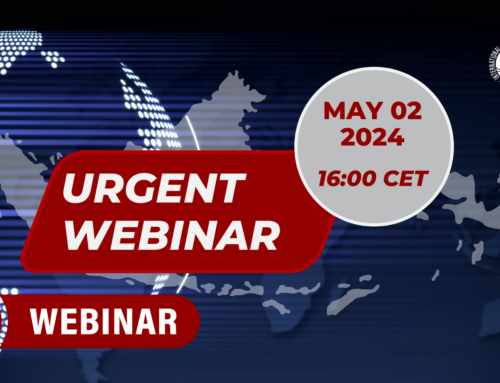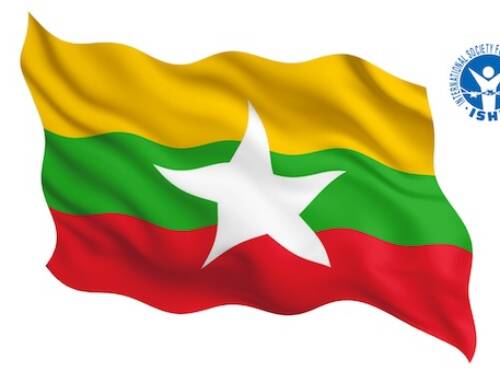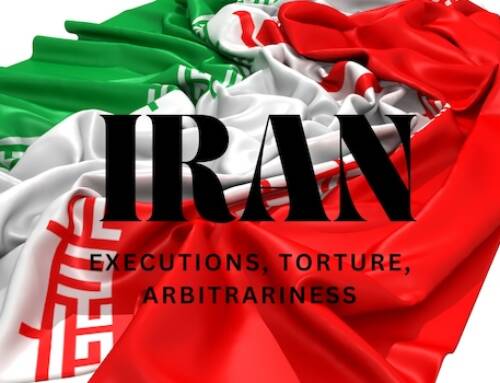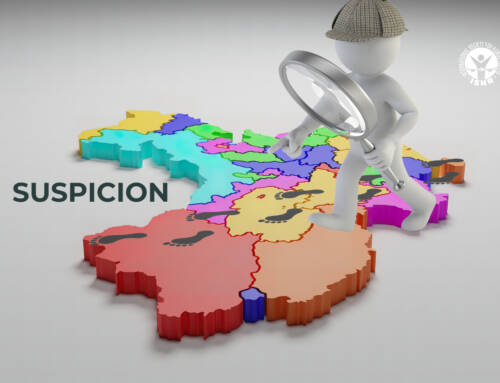NORTH & SOUTH AMERICA

Without Borders’:
On the Venezuelan refugee crisis, the largest in the history of Latin America
(Sept. edition 2018) – Diego Alejandro Marin-Cifuentes of ISHR Colombia described the massive refugee exodus out of Venezuela, due to the ongoing economic catastrophe under its authoritarian president, Nicolas Maduro: “Despite the recent pronouncements of several South American governments to regulate the entry or passage of Venezuelans to their territories, the government of Colombia has decided not to impose any kind of restriction on those who arrive from neighboring Venezuela; Venezuelans will not have to produce a visa or passport, and they will not have to guarantee a minimum income to enter Colombia”, says Marin-Cifuentes.
 He wrote that Colombia reflected a more humane view of the situation faced by those fleeing from the tyranny of Nicolas Maduro’s regime. According to the UN, approximately 2.3 million Venezuelans have left Venezuela as of June 2018, primarily to Colombia, Ecuador, Peru, Brazil, and Chile. “Colombia undoubtedly has experienced people fleeing based on our own history, including in regards to what this uprooting process entails for those who leave and for those who are left behind. Perhaps our history has strengthened us as a country and better prepared us to receive them, than those who have never experienced forced migration”, explains Marin-Cifuentes.
He wrote that Colombia reflected a more humane view of the situation faced by those fleeing from the tyranny of Nicolas Maduro’s regime. According to the UN, approximately 2.3 million Venezuelans have left Venezuela as of June 2018, primarily to Colombia, Ecuador, Peru, Brazil, and Chile. “Colombia undoubtedly has experienced people fleeing based on our own history, including in regards to what this uprooting process entails for those who leave and for those who are left behind. Perhaps our history has strengthened us as a country and better prepared us to receive them, than those who have never experienced forced migration”, explains Marin-Cifuentes.
“Today in Colombia, you can see many people in transit whose bodies are weary and who carry pain in their souls. In their faces, you can see the tragedy and the burden they carry on their shoulders, as the the last hope for their families. The misery that Nicolás Maduro has managed to bring to his country is worthy of the greatest tyrants; he not only has imposed it on his homeland, but dragged it throughout the continent, by driving his people into self-exile. But happy faces can also be seen, as they receive help from individuals or the Colombian state, which fans the flame of hope of all of Latin America”.
Marin-Cifuentes concluded by applauding the Colombian government’s position of “receiving Venezuelan migrants as what they are – human beings with rights”. Despite his country being a developing country itself, with many internal problems, “it has not forgotten the most important thing – respect for humanity”.
Venezuelans in crisis need help on both sides of the border
 (Nov. edition 2018) – Silvia Osorio, President of ISHR Colombia, Cristian Rare, from New Generation Colombia, and Haydee Marin, Vice President of the ISHR and Coordinator of the Latin America Committee, visited Cucuta, Colombia on the border with Táchira, Venezuela on October 12, 2018. Ms. Marin reported on their visit to the border, in which they spoke with representatives of Venezuelan churches and civil society, and to evaluate the pressing needs of Venezuelan citizens who are fleeing Venezuela, as well as those who remain in their home country.
(Nov. edition 2018) – Silvia Osorio, President of ISHR Colombia, Cristian Rare, from New Generation Colombia, and Haydee Marin, Vice President of the ISHR and Coordinator of the Latin America Committee, visited Cucuta, Colombia on the border with Táchira, Venezuela on October 12, 2018. Ms. Marin reported on their visit to the border, in which they spoke with representatives of Venezuelan churches and civil society, and to evaluate the pressing needs of Venezuelan citizens who are fleeing Venezuela, as well as those who remain in their home country.
According to Ms. Marin’s report, one of the major problems on the border is that people fleeing Venezuela only have the pressing need to flee from misery and oppression on their minds, without a clear strategy to follow afterwards: “You see men and women with children carrying bags with their only belongings, who come walking through the Colombian customs without knowing where to go or what to do next”. She explains that Colombian Catholic Churches and Protestants have been offering aid on the border, but they can’t keep up with demand, as there are simply too many people in need”.
“Venezuelans who possess passports can go to other countries, but those who do not have documents seek to cross borders by going through the mountains, looking to go to Ecuador, Peru, and Brazil by walking for days; many die from the cold in the mountains of Colombia”, says Marin. According to the calculations of Colombian authorities, approximately 30,000 Venezuelans cross the border daily via the Simon Bolivar Bridge, which connects San Antonio de Tachira, Venezuela with the city of Cúcuta, Colombia.
Marin paints a bleak picture of the scene at the border: “The streets of Cúcuta are full of Venezuelans who travel around looking for work; in the evenings, you see thousands of people sleeping in the streets. In the parks and public spaces, it is very painful to see Venezuelan girls between twelve and fourteen years-old working as prostitutes. The news shown on TV and in the newspapers is nothing compared to reality”.
Not only is the situation grim for those on the Colombian side of the border, but for those who remain in Venezuela as well. Marin described the humanita rian crisis inside Venezuela as follows: “There is no medicine available, children go hungry and without clothes or shoes; school teachers are not able to get pencils and notebooks so the children can write. We managed to speak with several teachers who told us about the daily problems they experience, in order to help the students. Children do not have anything to eat at home and come to school hungry”.
rian crisis inside Venezuela as follows: “There is no medicine available, children go hungry and without clothes or shoes; school teachers are not able to get pencils and notebooks so the children can write. We managed to speak with several teachers who told us about the daily problems they experience, in order to help the students. Children do not have anything to eat at home and come to school hungry”.
According to Ms. Marin, international organizations are not allowed to donate to Venezuelan civil society, “because the government of Nicolas Maduro does not admit wrongdoing, and to accept help would prove otherwise”. “However, through friends, we managed to send 5000 books on alphabetization and mathematics, which were donated to ISHR Colombia. We are currently collecting children’s clothing and school supplies to send to Venezuela”, stated Marin.
– Excerpt of our ISHR Newsletter/ Special Edition Dec. 2018 –





